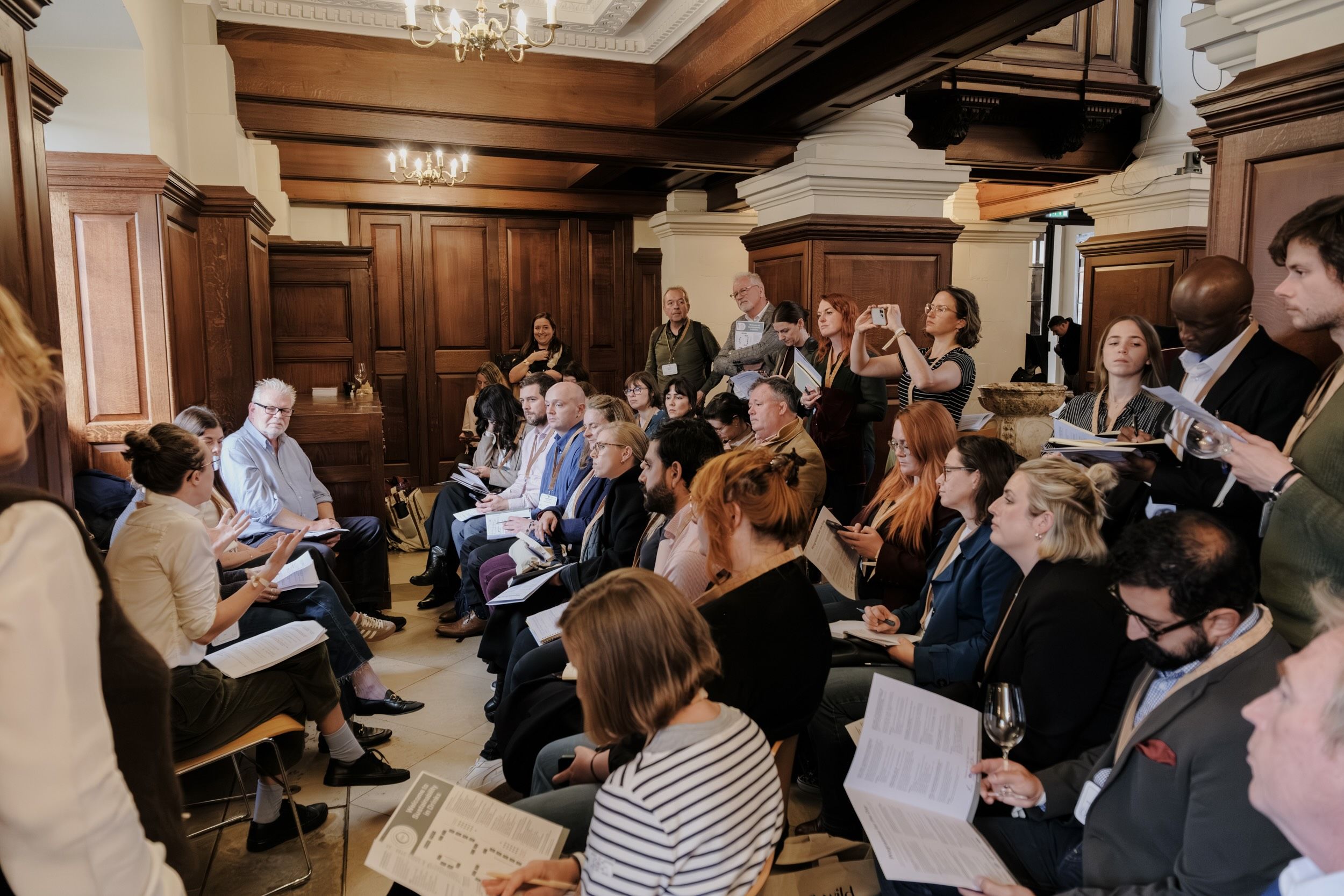“Part of our mission is to be a global leader on sustainability, but we also want to share, consult, advise and help others on what we have learnt.” That in a sentence sums up the spirit of togetherness that shone through at the second Sustainability in Drinks (SID) in London last month.
The fact it came from Allison Jordan, head of the California Sustainable Winegrowing Alliance, who travelled to the UK just to have the chance to take part in this breakthrough event shows how much of an impact SID has already had in its two years.
“It is important for us to be here and to learn from what other people, who we share so much common ground with, have to say,” she says.
It was a similar message from Dr Ed Massey, general manager for sustainability at New Zealand Winegrowers who had also travelled to London just to take part and get across key messages in what is such an important market about what "differences" the country is making to tackle sustainability “on a world stage” and the “steps it is taking to protect its famous wines”.
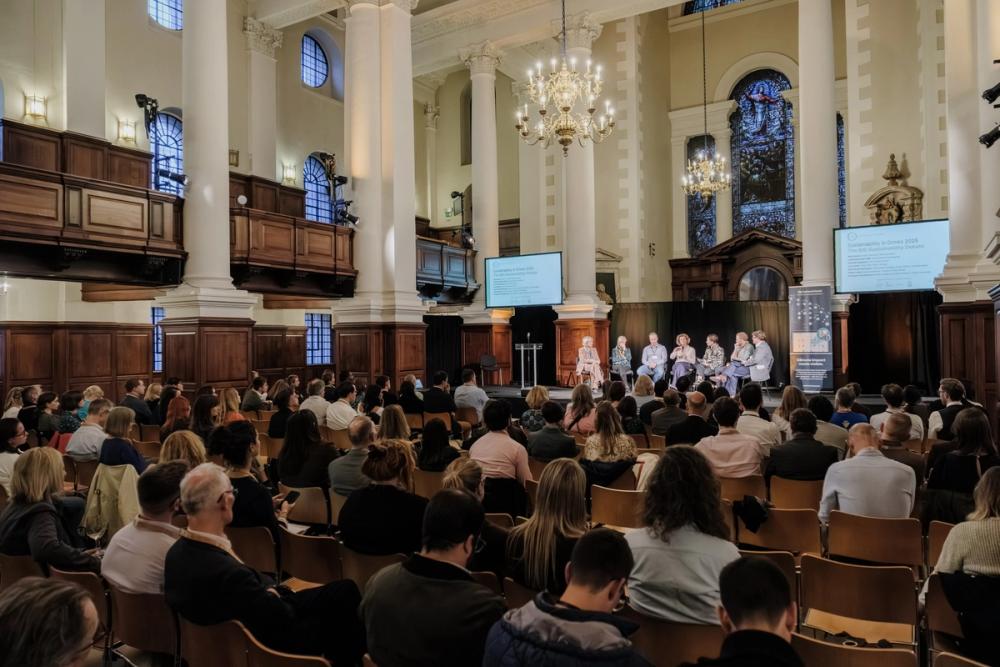
Christ Church in Spitalfields in London was an appropriate venue to host a drinks industry version of a congregation to discuss all things to do with sustainablity. Picture Thomas Skovsende
It also reflects how few opportunities there are for the global drinks industry to truly come together to discuss in such detail and openness the sustainability topics that matter to everyone and anyone in the sector.
The event also attracted Anna Brittain from Napa Green Program, Laura Jewell MW and the UK team from Wine Australia, Wines of Alentejo, one of the founding partners of the event, Adrian Bridge and the Fladgate Partnership in Portugal, Jeany Cronk of Maison Mirabeau and Domaine Lafage in France, Santa Tresa in Sicily, Gil Family Estates and Familia Torres in Spain. Further afield came Casella Family Brands and Keith Tulloch Wines in Australia, Vina Emiliana in Chile, Domaine Bousquet and Catena Zapata and Catena Institute of Wine in Argentina, amongst others.
Producers and wine bodies who in their own way are looking to find the most sustainable solutions when it comes to their viticulture, winemaking and supply chain practices.
With a supporting cast of sustainability service providers that have emerged in recent years to show the best way forward including at SID: Zevero; IWCA; Regenerative Viticulture Foundation; The Porto Protocol; founding partner, Beyond Zero; Sustainable Wine Solutions; and Carbon Cloud amongst others.
What makes SID particularly effective is the quality of speakers from the UK on and off-trade, and in particular their willingness to open up about the challenges they are facing to follow a sustainable strategy as well as the opportunities it brings.
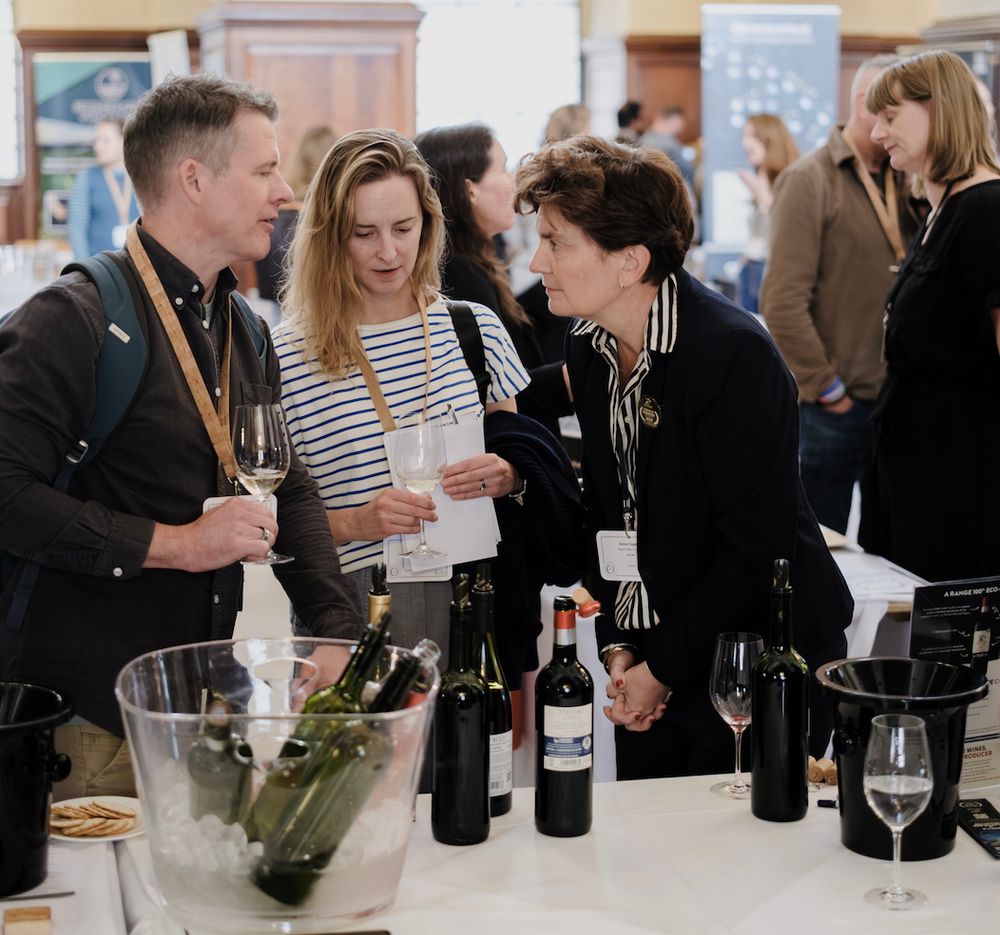
Sustainablity in Drinks was a chance to take part in debates, workhops and tastings but also an opportunity to network and share ideas all under the theme of sustainablity. Picture Thomas Skovsende
We were able to hear from leading figures from across the UK drinks industry including the Wine Society, Boutinot, Hallgarten & Novum Wines, North & South Wines, Majestic Wine Group, Berry Bros & Rudd, Levy, and representing international retail, the Swedish monopoly, Systembalagot.
Working together
“We all have to be on the same journey, we all have to follow targets and share best practices with our producers,” is how Emily Brighton MW, head of technical and sustainability at North South Wines explained why it was so keen to take part.
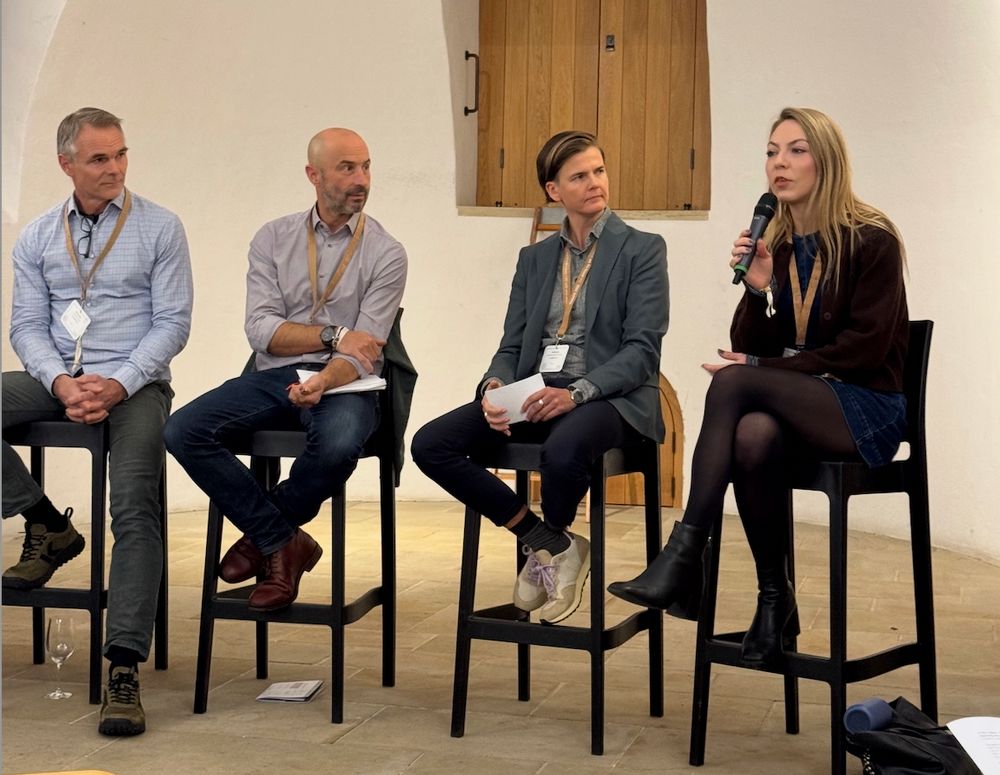
Emily Brighton MW from North & South Wines was able to explain why gaining B Corp status can have a such a positive impact on not just the business but the team and its suppliers
She says gaining B Corp status has been an important and invaluable step not just for the team at North & South Wines, but also the message it sends out and and the standards it sets for all its producer partners that want to sell their wines in the UK.
The spirt of collaboration and openness at SID was probably best illustrated by Systembalagot, infamous in the past for how secret it is about its trading practices. But when it comes to sustainability it is keen to be seen as a sharing, caring retailer leading from the front.
Marcus Ihre, Systembalagot’s sustainability manager, says its biggest impact on the environment is its global supply chain so it has to work in a detailed, scientific and collaborative way with all its supply chain partners if they are to act responsibly together.
Carolin Haas, global head of GoGreen Programme at major logistics provider, Hillebrand Gori, says it has to work in partnership with its drinks industry customers if it is too meet the carbon targets it has set as a business. “We have to collaborate together,” she says.
Interestingly Kevin Watson, sustainability director at Levy, which specialises in supplying food and drinks to sports stadiums and music venues, says this sprit of collaboration has completely changed what a business like Levy can now ask and expect from its suppliers.
“You can now ask your suppliers what they are doing on sustainability. It is accepted,” he says.
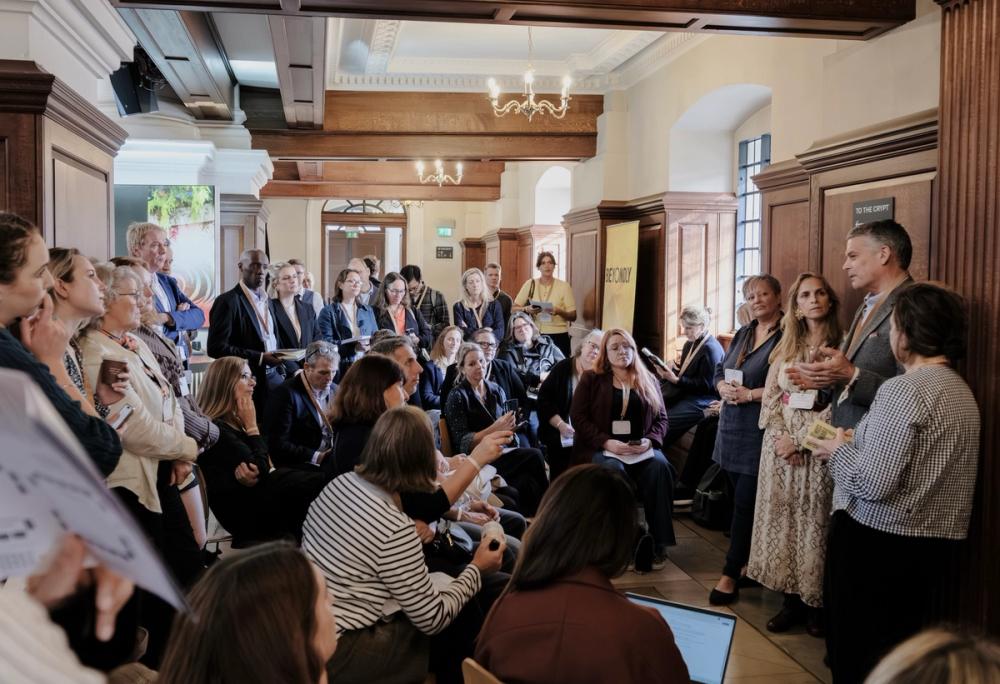
The Sustainability in Drinks event was broken down into a series of workshop sessions on different topics of sustainblity. Picture Thomas Skovsende
Jordan at the CSWA says it is used to working in a spirit of collaboration and already shares what it is doing with other US sustainability programmes like Lodi Rules and Napa Green and all its programs and best practice modules are on an open source platform for anyone to use and modify for their own needs.
“It is geared to California but there is a lot of information on there that any producer or wine body could use. We are very much of the view that a rising tide lifts all boats,” she says, which is also how it has succeeded in getting 90% of its members to be certified under its sustainability scheme, which covers 45% of all vineyard acreage in California.
It is also very aware that as the climate changes, and as producers needs and executions change with it, then all its toolkits and codes will need to be updated and modified on “an ongoing basis” - pointing to the rise in dry farming practices as a case in point.
Data sharing
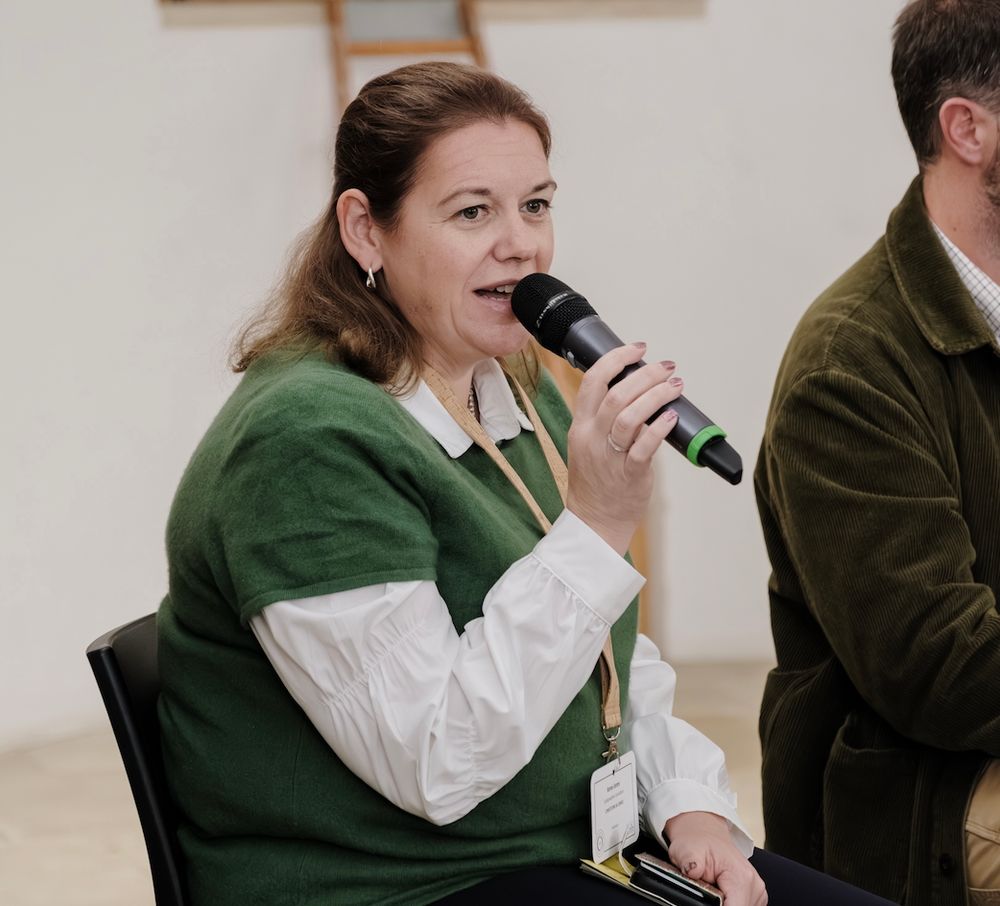
Anne Jones was able to bring her own sustainablity expertise to her role as an excellent panel chair throughout the day. Picture Thomas Skovsende
If the drinks industry is really going to succeed in acting as one then it has to get better at sharing and understanding the data that everyone in the supply chain is producing, says sustainability consultant, Anne Jones.
Data that if analysed and used correctly could have an enormous impact on how effective the drinks industry is being in really tackling sustainability in every possible way.
“Data allows us to make decisions - like the life cycle assessments of different products we are using,” agrees Watson.
Dr Massey at New Zealand Winegrowers says it has worked hard to only promote what he calls “fact based” strategies around its new zero sustainability targets with set rules and regulations across six defined areas for producers to follow.
“That’s the way we can focus on constant improvement. We are very data heavy. That way a producer can assess where they are [on sustainability].”
David Bryngelsson, chief executive of CarbonCloud, says it is vital for any business, or industry, that is serious about hitting net zero targets have clear data management and tracking systems put in place.
That’s the only way your customers can “trust the numbers being discussed,” he argues.
Sara Norell, chief assortment & sustainable purchasing officer Systembolaget AB says it is committed to collecting data in order to build up what it calls a Product Carbon Footprint (PCF) for every item it sells.
She says: “It is a process designed to increase transparency and inspire best practice throughout the supply chain. Bottle weight was a starting point, but it’s no longer enough. We, as a retailer, want to be more inclusive - give credit and business opportunities to all efforts, that reduce climate impact - whether in vineyards, production or packaging, each representing roughly a quarter of our footprint.”
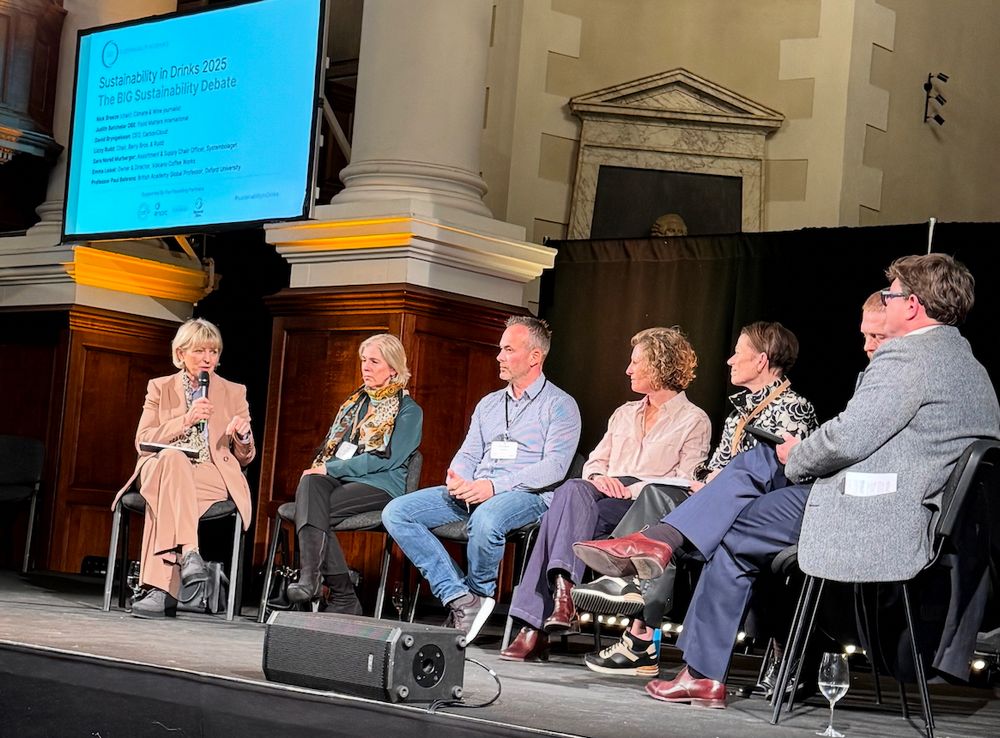
Judith Batchelar of Food Matters talking during The Big Sustainablity Debate held at the end of the event
Judith Batchelar of Food Matters, and former Sainsbury's executive, urged the drinks industry to come together and try and find a way to set sector-wide standard data that everyone can understand, track and collect. That way you can truly benchmark and analyse how you are doing as a collective and not as 1000s of individual businesses.
“That way you are using the same currency and speaking the same language,” she says.
Lizzy Rudd, chair of Berry Bros & Rudd, says a key factor in gaining B-Corp status is the level of data recording and analysis and adopting disciplines that really help you better understand what is happening in your business that you can “communicate to your consumers and the trade”.
Communicating sustainability
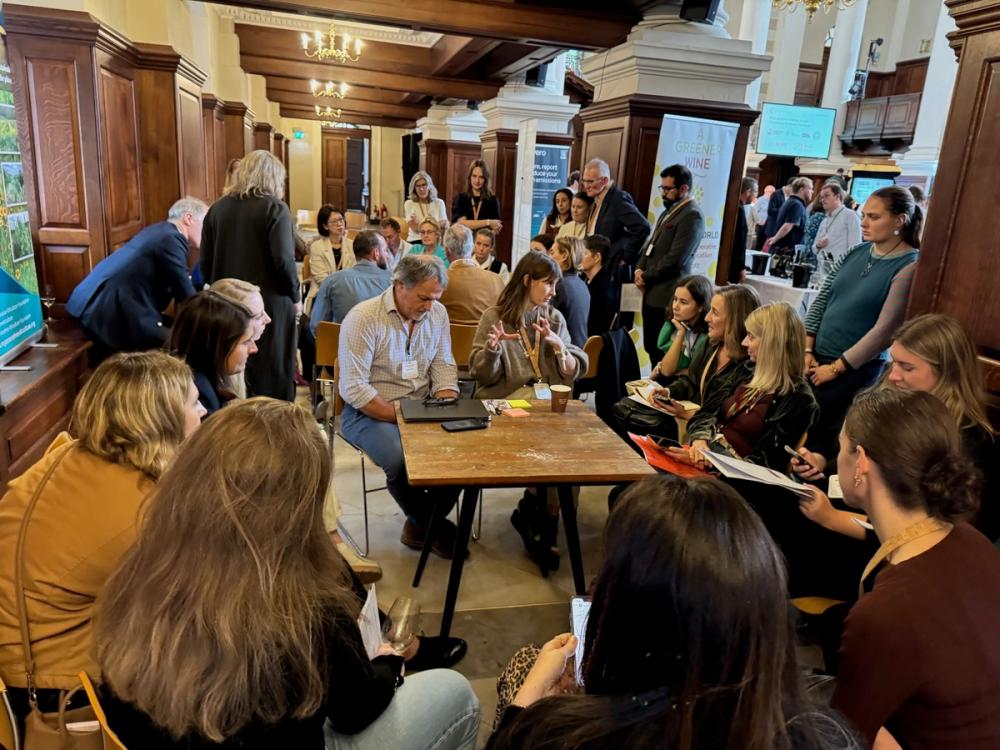
How the drinks industry best communicates what it is doing to tackle sustainability to the end consumer, and the younger generation in particular, was a returning topic at SID. With no real clear way forward.
Jane Masters MW, wine buyer at Majestic Wine Group, believes the wine industry as a whole has to better understand what impact climate is going to have on the sector before it gets too bogged down in how it then communicates all that to the consumer.
Jordan at CSWQ says the best thing the industry can be doing is demonstrate “authenticity and credibility” to those consumers who are interested. It is, for example, doing what it can to tailor and “develop” story lines that it thinks will best resonate with younger drinkers - particularly using social media.
If it can get it right then there is a potentially powerful and effective message to get across as there are so many aspects of what the wine industry is doing that will resonate well with younger consumers, she adds.
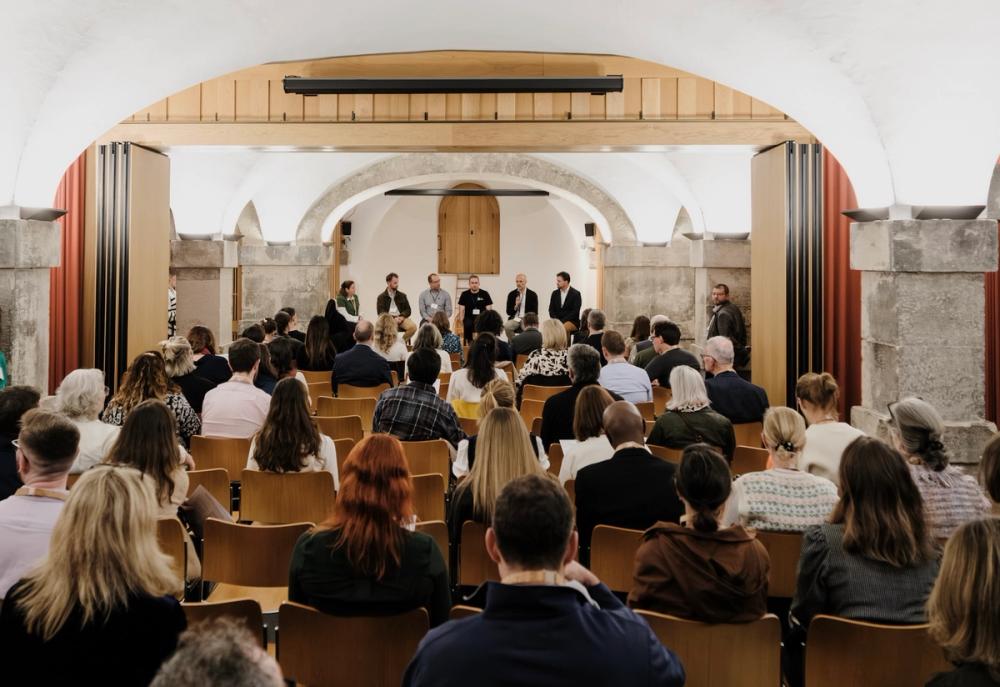
What made Sustainablity in Drinks such a successful event was the quality and diversity of the panel debates
Dome de Ville, director of sustainability at the Wine Society, is not sure how influential it can ultimately be with its consumers. Yes, there are those who will listen and take on board its sustainability messages, but there will always be a hard core, of around 30%, “that don’t care and will never care”.
De Ville thinks the industry should focus less on “generic [sustainablity] messaging” and be far “more targeted on what people are interested in” and find ways we can “personalise the narrative to people we are selling to” rather than coming across as “preaching”.
He argues the trade would be better off “talking less about carbon” and more about the health benefits producers working with more sustainable grapes and vines can bring. The added value “perk” it is to know that the Wine Society, for example, is working with a producer that makes “great wine but it happensto be in a lighter weight bottle”.
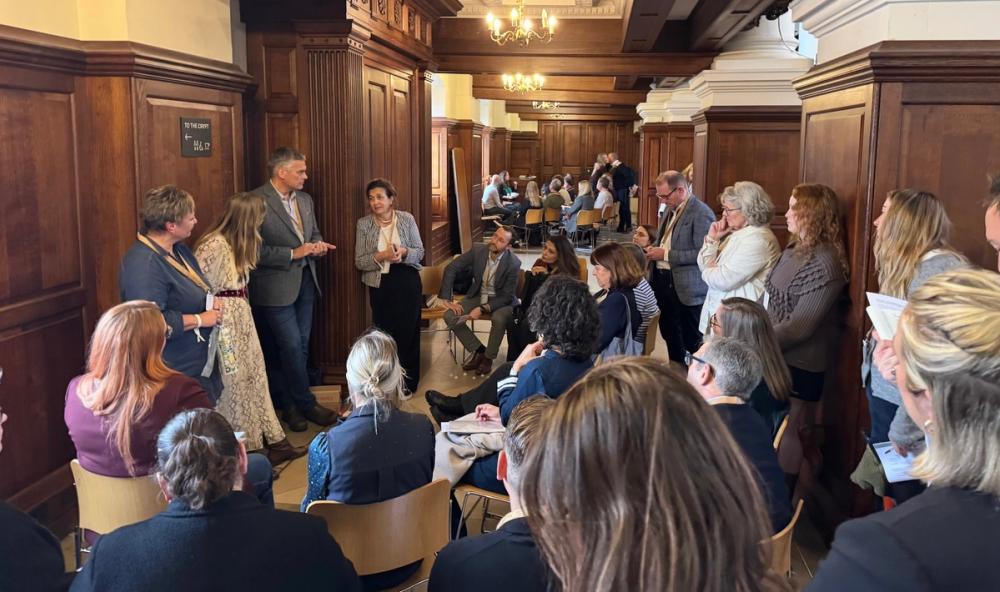
Sustainablity in Drinks brought people together from all over the word.
Interestingly Jeany Cronk at Maison Mirabeau says the debate around alcohol in general in France has become so “toxic” that having a strong sustainability message is the “entry ticket” into talking to consumers at all.
“We need to widen that message out in social media and to the national media,” she adds, before stressing how hard it has been to get the national media interested in its sustainability story that now rests so much in regenerative viticulture. “Mainstream media must have a role to play.”
Building a community
Claire Mackenzie, producer at Six Inches of Soil advertising agency, urged people to check out the sustainability messaging of Fielden whisky and Gail’s the bakery chain in how they have been able to get an authentic connection with their customers by making sustainability a key part of their business and brand story - and building a community around that.
“That socio-connection is really important and how you build up your community,” she adds.
It is something that Majestic is very aware of, says Masters, and it is encouraging its store teams to build on those local connections and relationships with customers and giving them the social media tools to do so.
“People like to be part of something bigger than them,” adds Jordan.
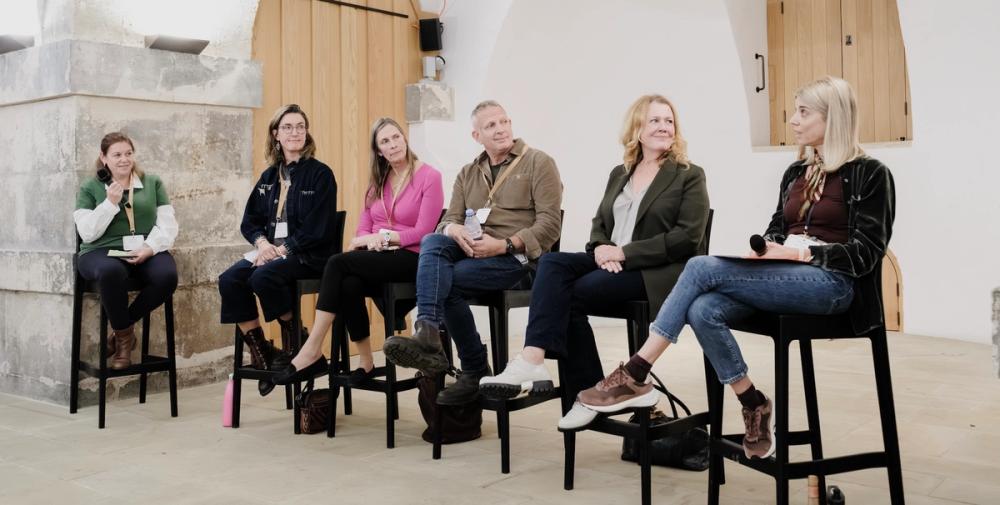
Jeany Cronk, right, was able to share her experiences of using social media to tell the sustainablity story at Maison Mirabeau. Picture Thomas Skovsende
“It’s all about pictures rather than information,” adds Cronk, who says all its messaging around Maison Mirabeau on Instagram is deliberately focused on telling any of its sustainability story as simply as possible.
“We take a highly visible approach. You have to understand where your consumer is in all this and go and meet them there,” she says.
At least we have moved a long way from simply communicating with wine consumers via Robert Parker-style points, says Tim Wildman MW, who has a strong sustainability story to tell for his pet nat brands in Australia, Astro Bunny, and in the UK, with Lost in a Field.
He believes the industry is at an “inflection” point with young consumers and “how we grapple with it is really important”.
“Points and critics are going to be less important,” he stresses. Whereas authentic information about producers and how they make their wines will be.
Which is where he puts all his energy with his social media posts, constantly looking to provide information and updates and not just images. Using “visual language that breaks with traditional wine language”. Instead he looks to get a “vibe of fun” going about wine, be it hosting harvest tea parties for his English wine.
Which is where he thinks “Mirabeau is way ahead” in what it is doing on Instagram.
“Your environmental credentials will determine where you can sell your wine,” says Wildman pointing to the huge success that natural wine bars are having in selling what can be quite expensive wine to young drinkers.
“We are seeing the baton being passed from the winemaker to the viticulturist,” adds Anne Jones, who is particularly pleased to see a new sustainability module within the WSET exams. “That’s going to be a big help in having a common language around these areas.”
Doing the right thing
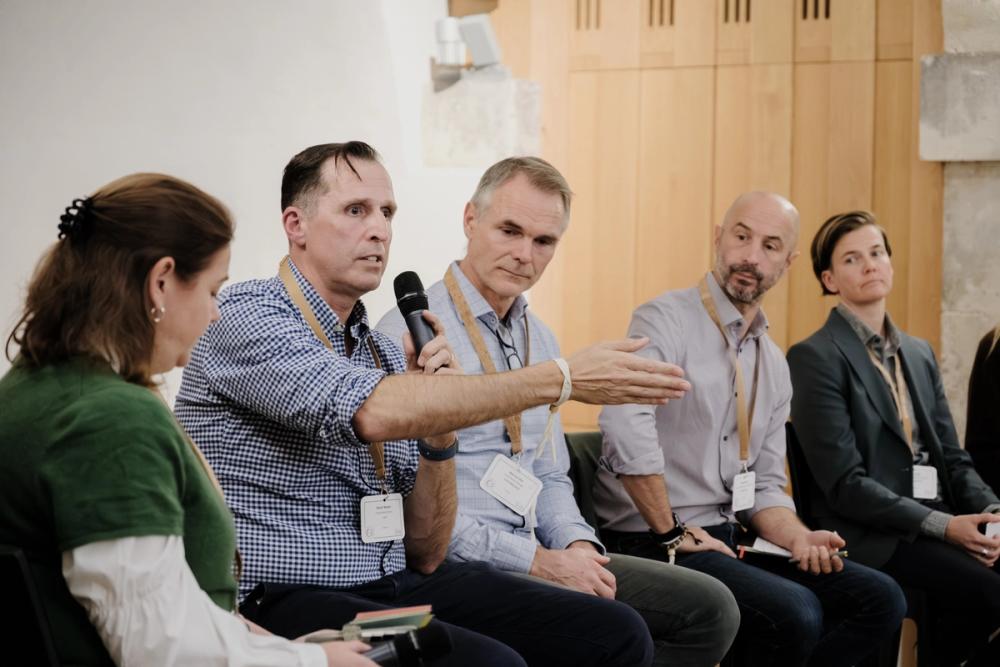
Levy's Kevin Watson was able to explain how it dictates what sustainblity choices its consumers make at the football and music venues it supplies food and drink to. Picture Thomas Skovsende
Watson at Levy is a strong believer in businesses taking the right course of action for the planet, rather than being distracted by how much the end consumer cares about its sustainability actions.
It has, for example, taken the decision to only offer its customers specific types of food on its menu. So if you want a burger at a football stadium or music venue it manages it will have 50% less meat in it. If you order a dessert it will be plant based. Buy a glass of wine or beer and it will come in a recyclable glass.
“We are making the decision for the consumer,” he says. “We are making changes on their behalf. We are getting on with it.”
Being sustainable also determines which suppliers - Bibendum and Enotria - it will work with and which wines it will buy from them. It’s why it does so much work with Uncommon Wine and its range of English canned wines.
Masters says the industry has to be better as a whole in what it is doing: “We need to be more consistent in what we are saying. We say we are sustainable or organic and then use a heavy bottle.”
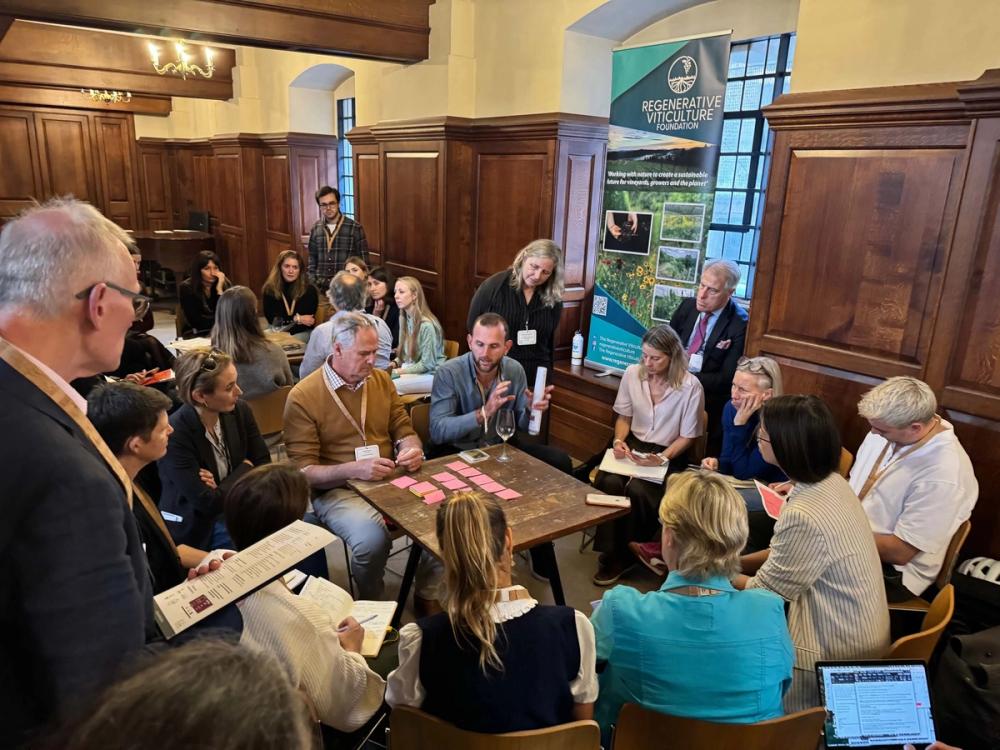
An individual producer’s actions might be small in the scheme of things, says Dr Massey, but “it sends the right message you are taking sustainability seriously”.
“Small actions all add up and we are doing what is right for the industry and the planet,” he adds.
Emma Loisel, owner of Volcano Coffee, says you will quickly lose customers if they “don’t see the values they expect to see” in your brand. So purposefully not doing the right is a dangerous position to take.
Good regulations
It is also up to the industry itself to set its own benchmarks and standards as it can’t always rely on respective governments to show the right way forward.
Batchelar says it works hard at Food Matters with the UK government to craft what she terms are “good policies and good policy outcomes” when it comes to sustainability.
Get it right and it provides a “level playing field” for all businesses to play on, get it wrong and it becomes like the “wild west” particularly in such a fiercely competitive arena as food and drink.
“There is a real value in getting this right,” she stresses.
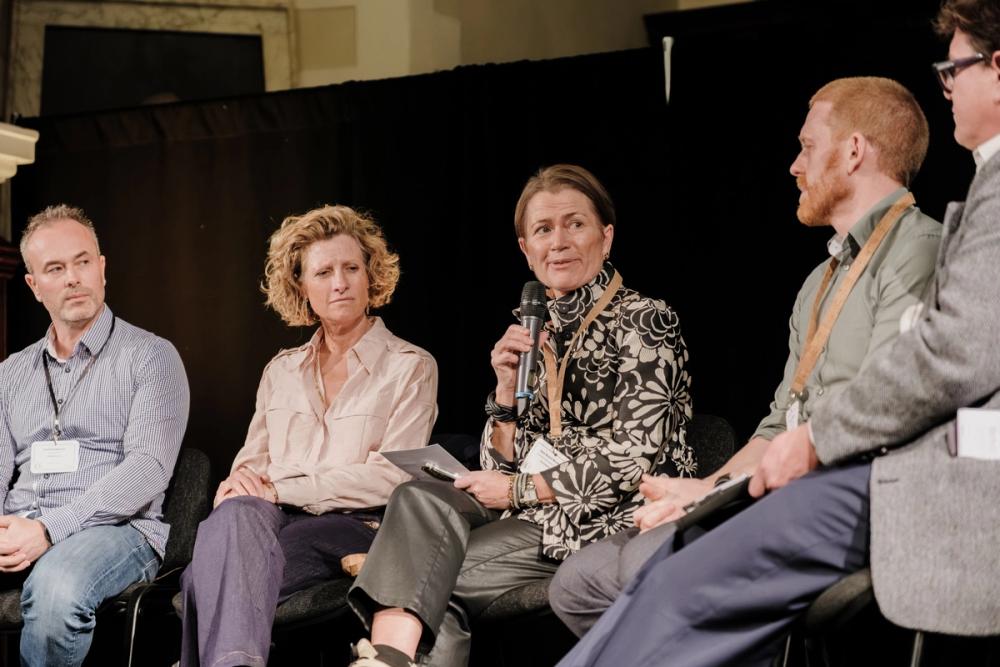
Collaboration between all parties down the drinks suppy chain is crucial if the drinks industry is to hit net zero targets says Systembalagot's Sara Noerell Murberger. Picture Thomas Skovsende
Sara Norell Murberger at Systembolaget, says having a "level playing field” with its suppliers is vital in ensuring everyone is pulling in the right direction and “they know what is expected of them".
“By working together we can do so much more. That’s why collaboration rather competition in this field is so important,” she adds.
“We need to be the facilitator between the consumer and the supplier,” she adds pointing to its own research that shows 80% of its customers want to be making better sustainability choices.
The final word goes to keynote speaker Paul Behrens British academy global professor at Oxford University who called on the drinks industry to do far more to engage and drive the public agenda when it comes to what it is doing with sustainability particularly when trying to talk to a younger consumer.
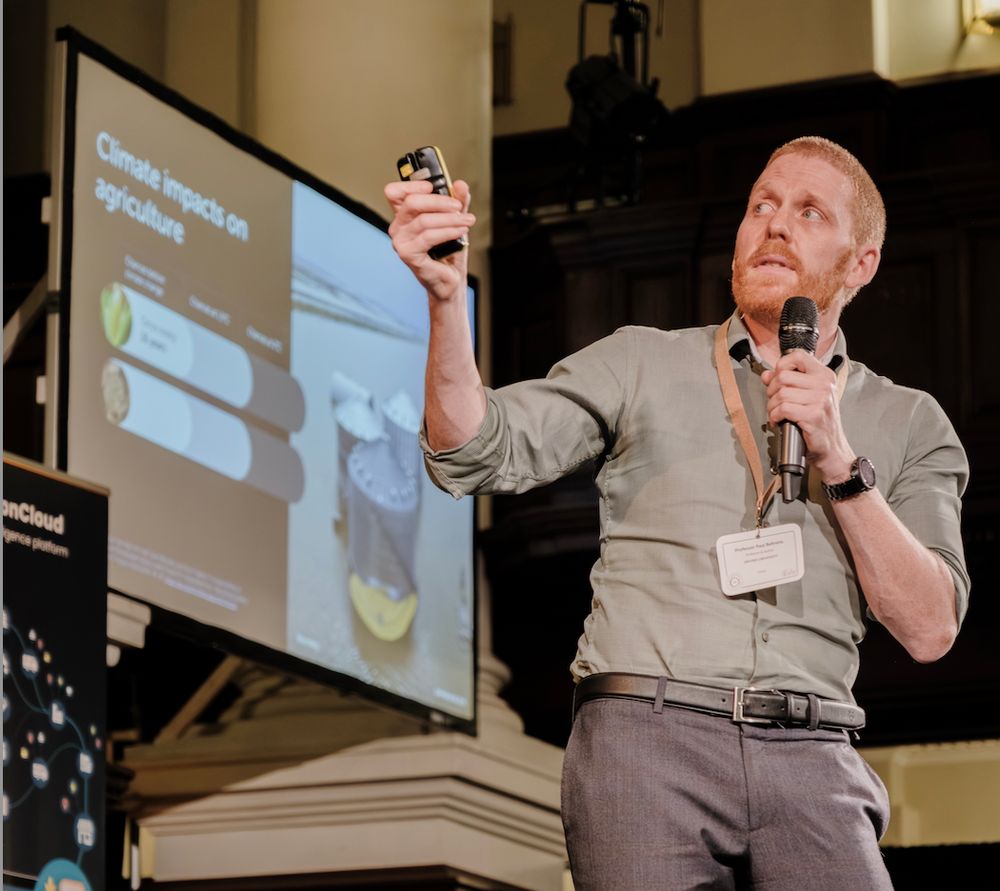
Professor Paul Behrens urges the drinks industry to do more to set the public agenda when it comes to drinks and sustainability. Picture Thomas Skovsende
Just look, he says, what the meat and dairy industry is doing to target 18 to 26 year olds and promoting eating meat and chicken in particular.Those sectors are right on the front foot to “target youngsters when they are at their most influenced and embed in them life long behaviours”.
For now it is up to the drinks industry to “embed life long behaviours” in what its producers, distributors and retailers are doing to drive sustainability through the sector and the energy and collective commitment to do more more than shone through at last month’s Sustainability in Drinks event.
* You can find out more about Sustainability in Drinks at its website here.
